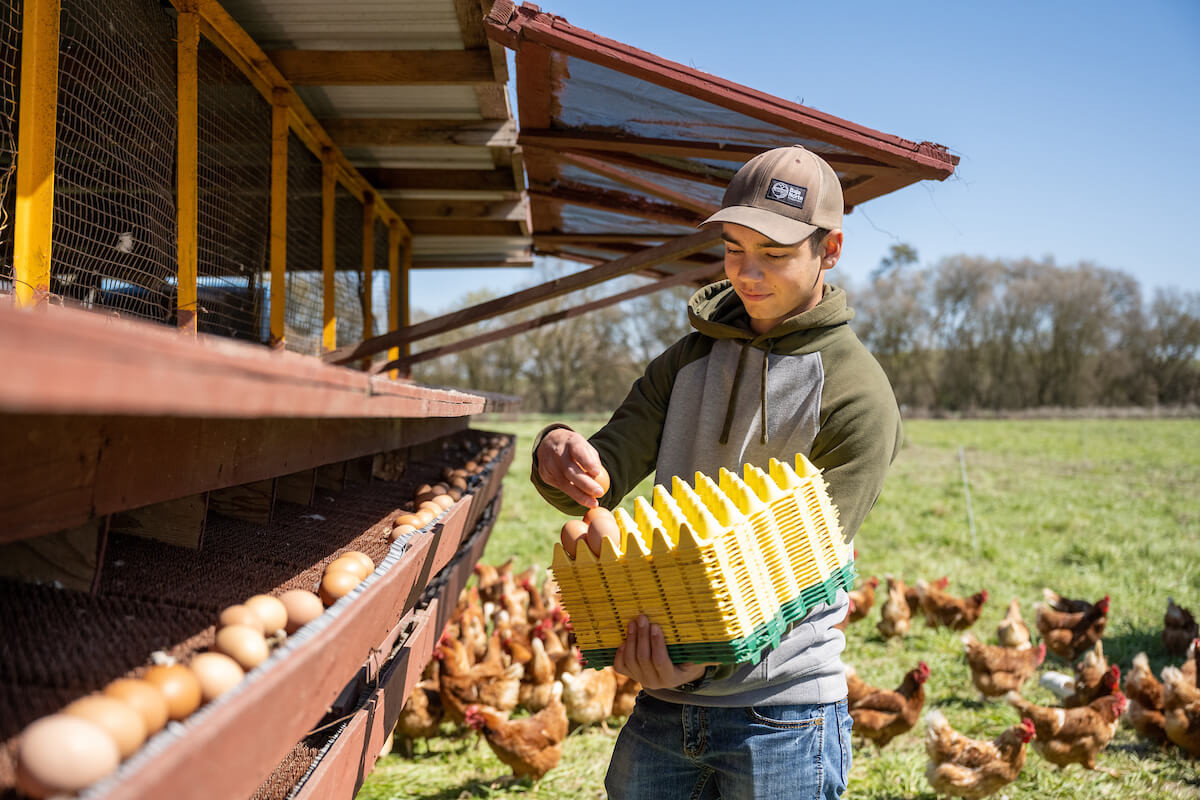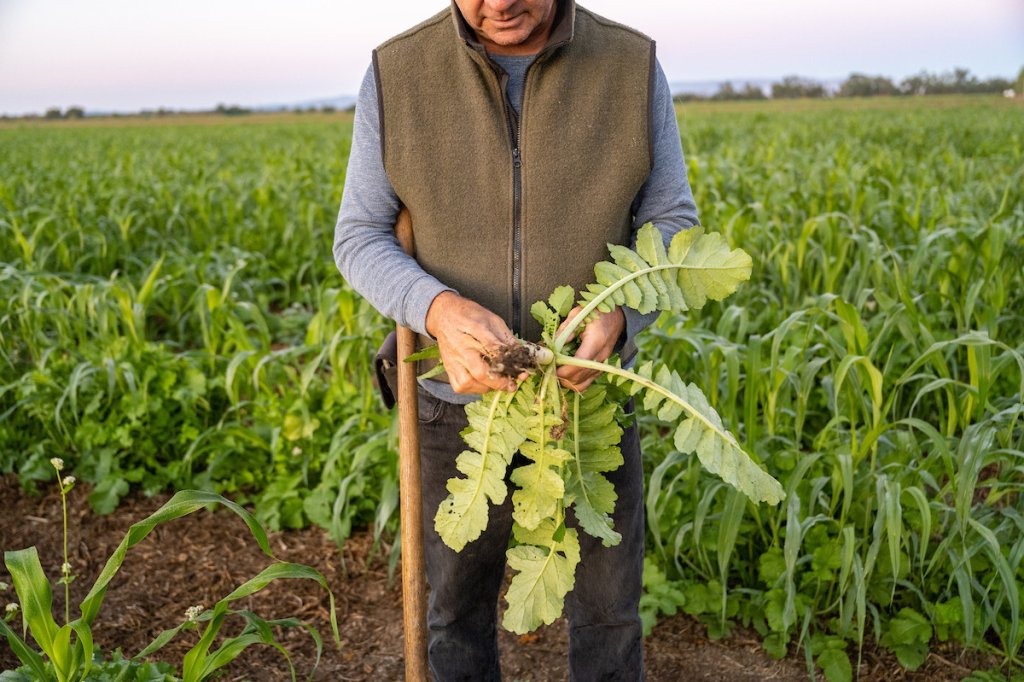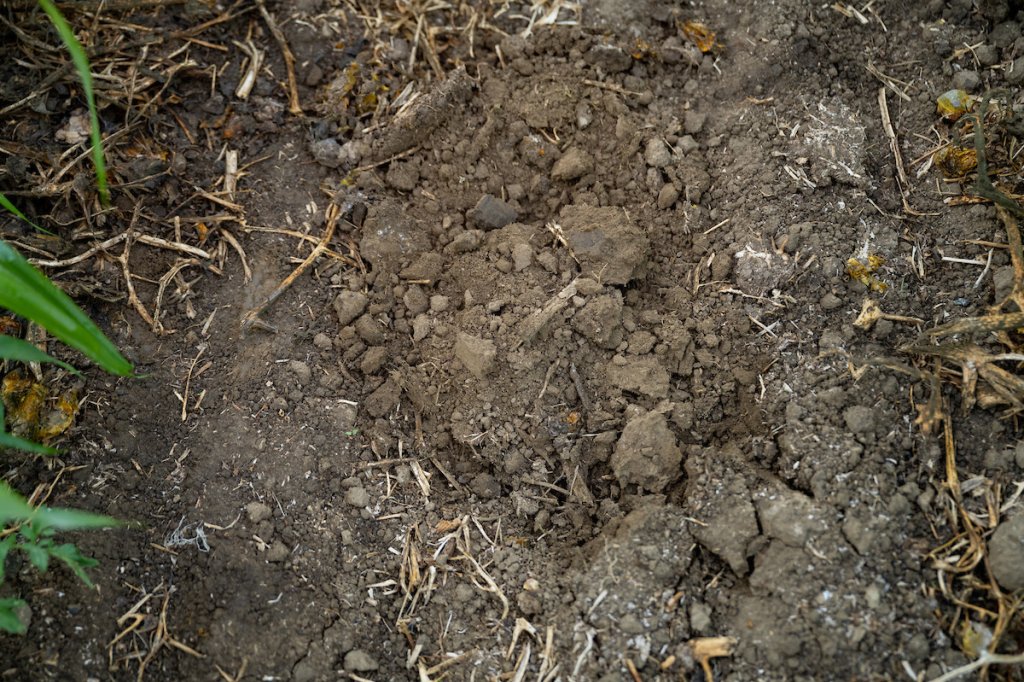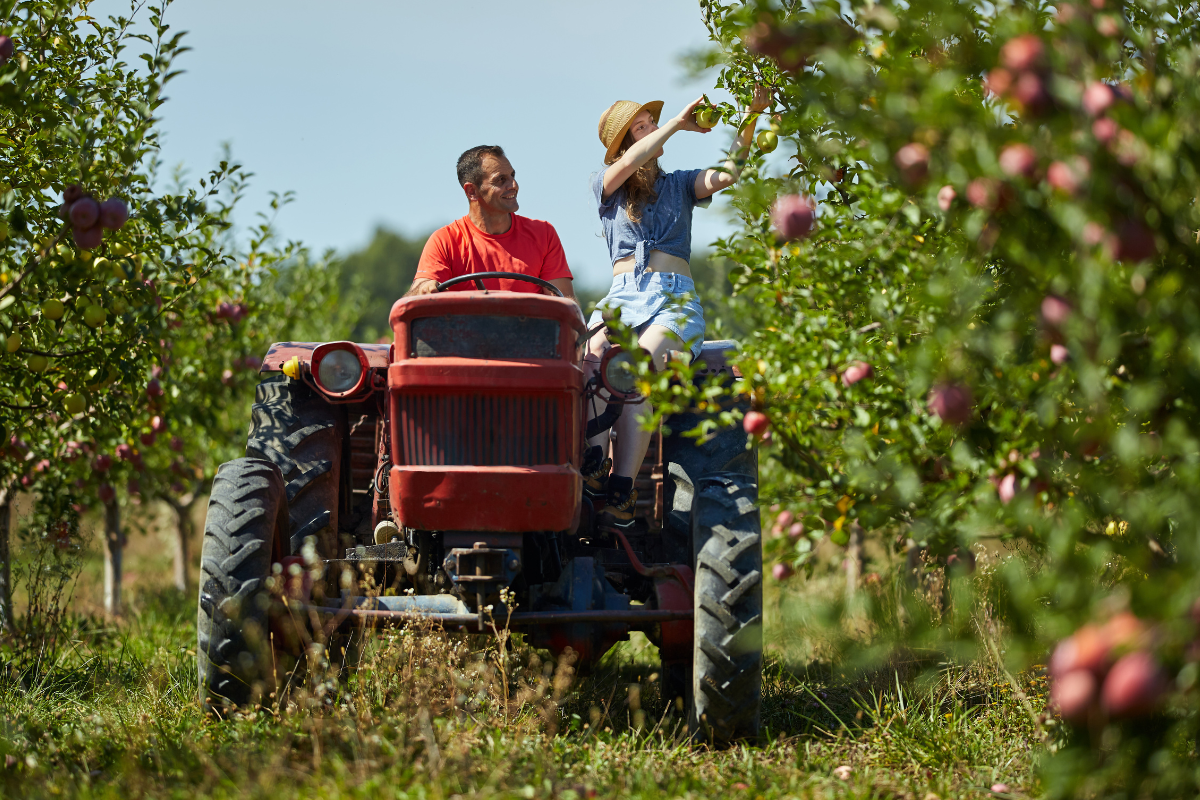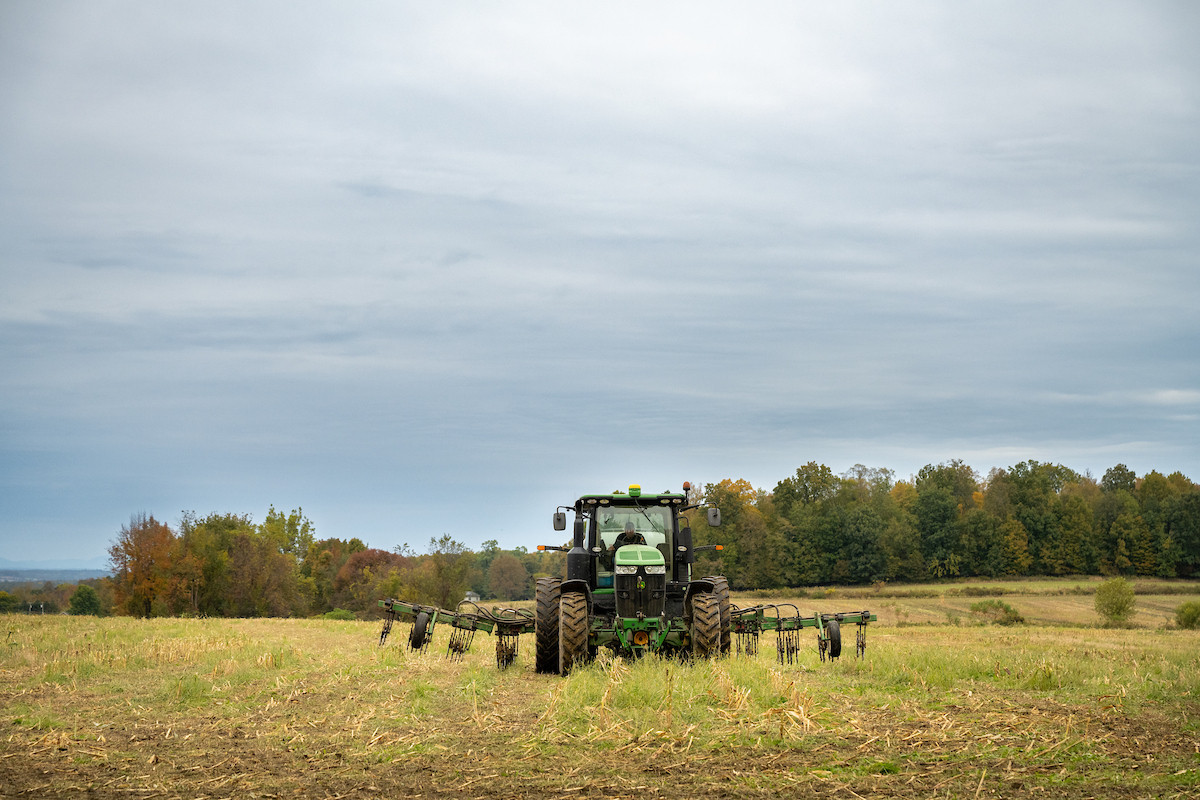Increase Adoption of Conservation Practices
Farmers and ranchers across the U.S. are experiencing unpredictable and extreme weather, including droughts, floods, heatwaves, and shifting seasons, costing them time and money. Helping farmers adapt and build resilience to this “new normal” is critical, and conservation practices, such as those that improve soil health, play an important role.
Soil health practices are a win-win: Farmers benefit from resilience to drought and flooding, improved yields, and reduced revenue losses. Communities benefit through improved food security and water quality, as well as climate change mitigation, as healthy soils sequester more carbon. Healthy soils can even reduce crop insurance program costs!
Unfortunately, national adoption of soil health practices is minimal, and farmers must overcome significant cost, knowledge, and support barriers to reap these benefits. In a recent white paper, AFT detailed stories from farmers and ranchers about how they are being impacted by extreme weather and discussed the opportunities at the state and federal levels to support them. The Farm Bill presents an opportunity to provide more effective and equitable support to all producers to help them meet their conservation and economic goals while feeding their communities in the face of a changing climate. AFT recommends that Congress:

